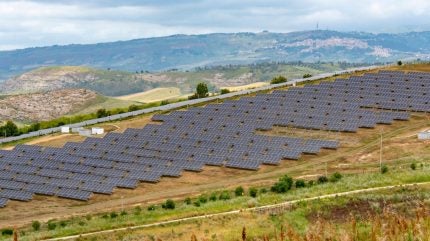
The Italian Government’s recent limiting of solar panel installations has garnered criticism from industry body Elettricita Futura for potentially jeopardising the nation’s decarbonisation objectives and leading to higher electricity costs.
The right-wing coalition government’s ban on ground-mounted photovoltaic systems on agricultural land has been met with concern.
Elettricità Futura, represented by key power companies such as Enel, A2A and Edison, has expressed worries that the new regulation, awaiting approval from both houses of parliament, could inflate the costs of developing new solar projects.
Reuters quoted it as saying in a statement: “The new regulation could also lead to a credibility problem for our country in dealing with companies which have planned projects worth up to €300bn ($323bn) to make the installations necessary to reach the 2030 targets.”
The rule is also expected to complicate the permitting process and threaten Italy’s green energy targets.
The government’s draft plan for energy and climate aims to boost solar energy production by 50GW by 2030, moving away from fossil fuels.

US Tariffs are shifting - will you react or anticipate?
Don’t let policy changes catch you off guard. Stay proactive with real-time data and expert analysis.
By GlobalDataThe industry body warns that the rule could worsen the scarcity of large solar farms in Italy, a factor contributing to the high cost of renewable energy in the country.
Elettricità Futura also stated: “Electricity generated by utility-scale photovoltaic systems costs a third of the electricity generated by residential rooftop photovoltaic systems.”
Agricultural lobbies have advocated for restrictions, citing conflicts with farming activities.
Despite this, Italy – as a G7 member – has committed to tripling its renewable power generation capacity by 2030, which would require an increase from the current 66GW to 198GW in seven years.
Italia Solare, the association representing the solar sector, has expressed its opinion that agriculture and photovoltaics can coexist.
It suggests that utilising just 1% of unused agricultural land could provide half of the 50GW needed for Italy to achieve its 2030 targets, with the remainder potentially sourced from rooftop installations.



